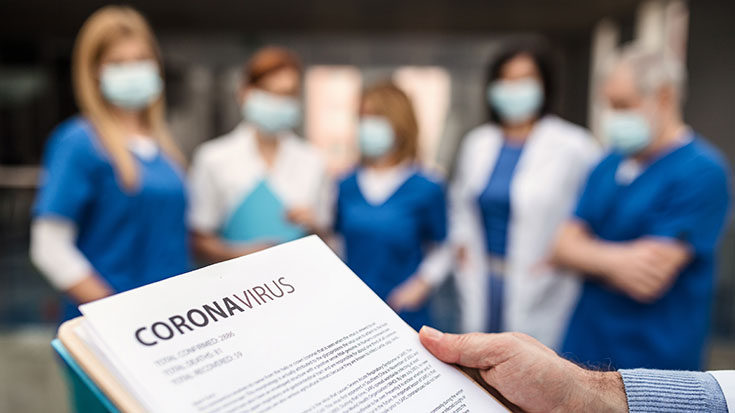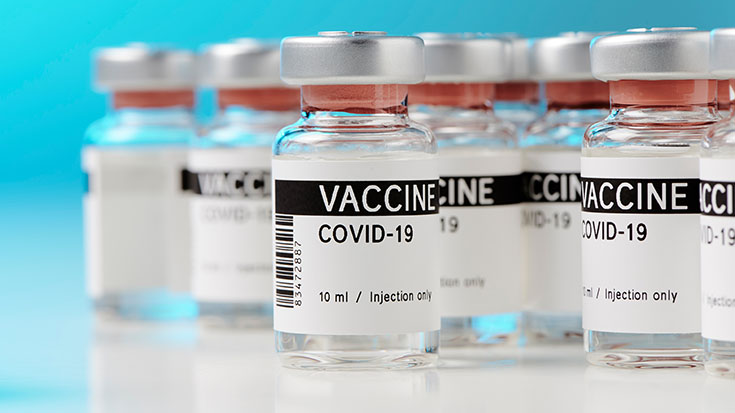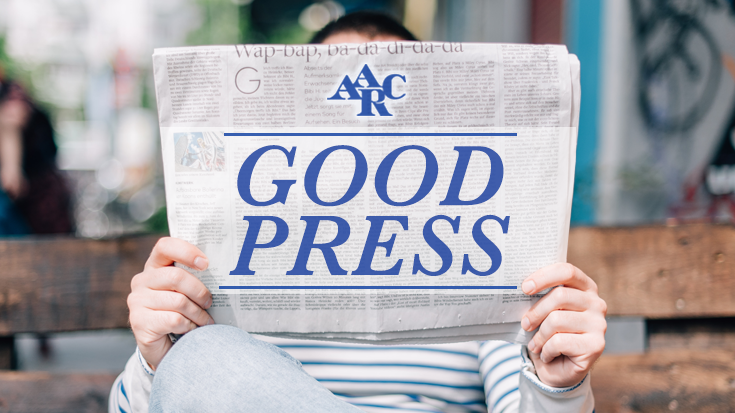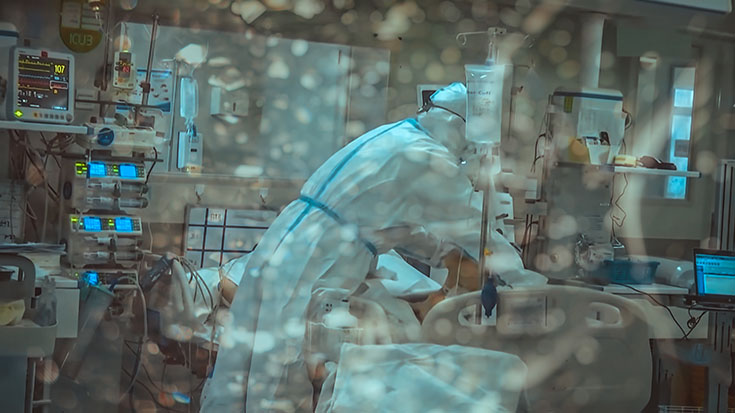
When the pandemic hit the U.S. in early 2020, Ken Kloes, RRT, was busy taking care of people with sleep disorders through his job as a respiratory therapist at the UW Health Wisconsin Sleep Center in Madison. His day revolved around obstructive sleep apnea and positive airway pressure therapies.
As someone who has suffered from asthma since early childhood, it was a fairly safe place for him to carry out his role as a therapist.
“Growing up, I would usually be in the hospital for a week or two each summer with an attack,” he recalled. “Most significantly, I was very close to dying at 10 years old.”
Answering the call
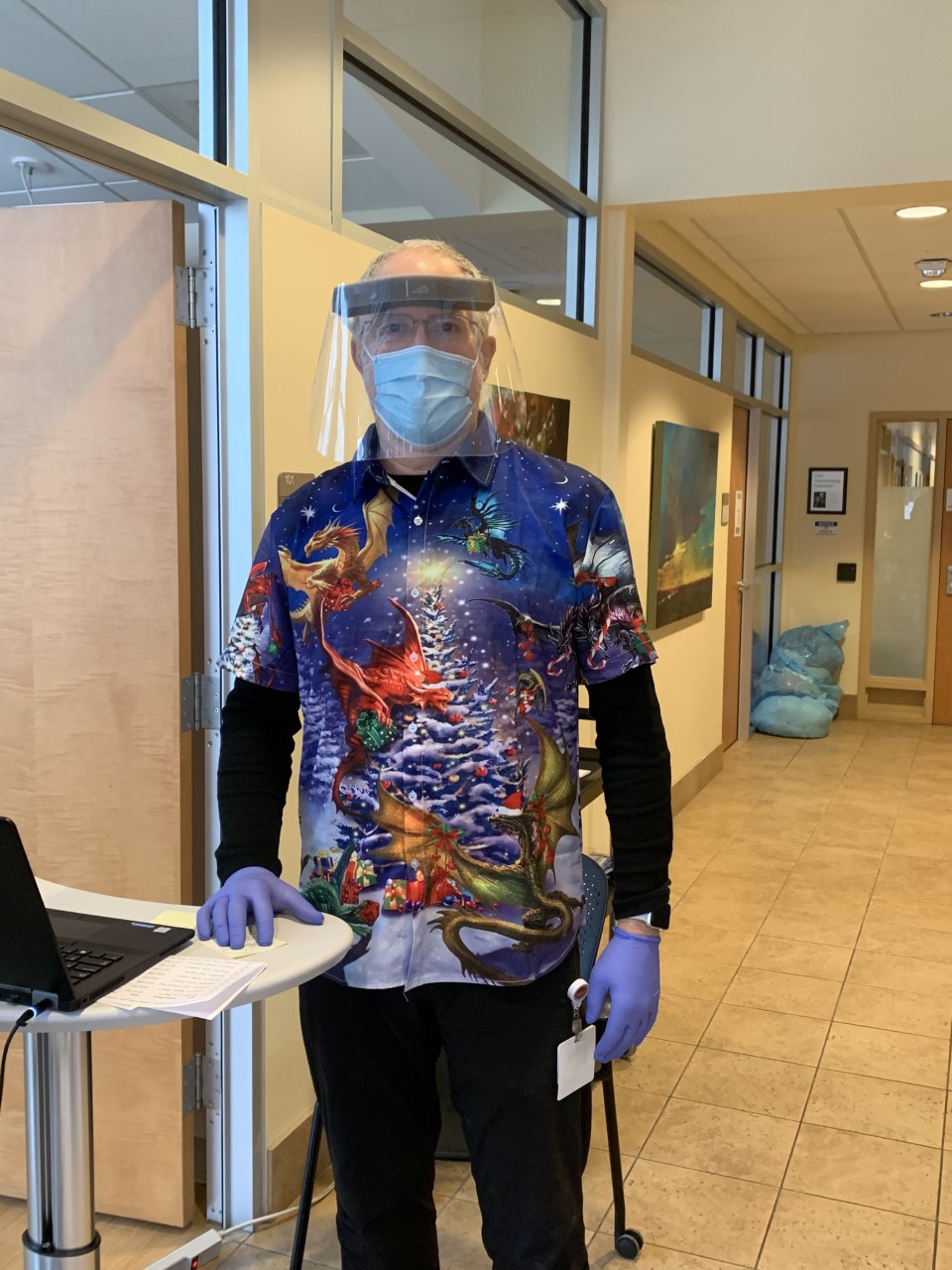 Ken Kloes, RRT.
Ken Kloes, RRT.He can still remember how it felt.
“Even lifting a finger was too much,” he said. “When I would cough, I wasn’t sure if I could recover.” He was blue by the time his parents got him to the ER, and his doctors estimated that he would not have lasted more than about hour without treatment.
Kloes says the experience, though, prepared him to be calm under pressure, and it turned out he would need all of that resolve to answer the call put before him when his sleep center shut down due to COVID-19 in March of 2020.
The next stop for him was to be out on the front lines, testing people for the disease.
“My transition was abrupt,” he said. “In the morning, I was working in the clinic. At 11:30 a.m., I was told to go to the COVID testing location after lunch. By 1 p.m. I was in a hazmat suit collecting nasal swab samples.”
Today COVID testing is routine, but in those early days, it was anything but. No one knew just how contagious the virus was or just how deadly it might be for anyone exposed to it, let alone for anyone with a long history of asthma.
“Having almost died as a child, and with first-hand experience of what it feels like to not be able to catch your breath or even know if you are moving air, it was a bit terrifying to think that I might catch COVID and go through that again,” said Kloes. “I thought hard about this over that fateful lunch period in March.”
The decision, though, was actually easy, he continued.
“I was in a position to help others and do my part managing the emerging pandemic,” he said.
A different perspective
Kloes continued to test people until July when he was able to transition back into the sleep clinic. While he heard talk of having RTs like him deploy into the hospital if needed, and he was ready to go if called, that thankfully never came about. He escaped the virus until just this past December, when he contracted a breakthrough case.
“Good thing I was vaccinated and boosted,” he said. “I didn’t do anything different for my asthma other than to mask up, social distance, and do what I could to stay safe.”
As for his time at the early testing site, Kloes wants to emphasize that he can’t compare the experience to the trials encountered every day by therapists working on the front lines in hospitals and ICUs, but he does know what it’s like to face someone who might have the disease.
“I didn’t walk into rooms,” he said. “What I did see, though, were scared individuals driving up, not knowing if they were infected, and hoping that they wouldn’t wind up in the hospital on a ventilator to die alone.”
Fortunately, Kloes was there to help and be a calming presence for these individuals during this moment of great uncertainty.
Ken Kloes was recently featured in a recent Wisconsin Voices segment on the Spectrum News 1 website, where he was able to share his story.
Email newsroom@aarc.org with questions or comments, we’d love to hear from you.







